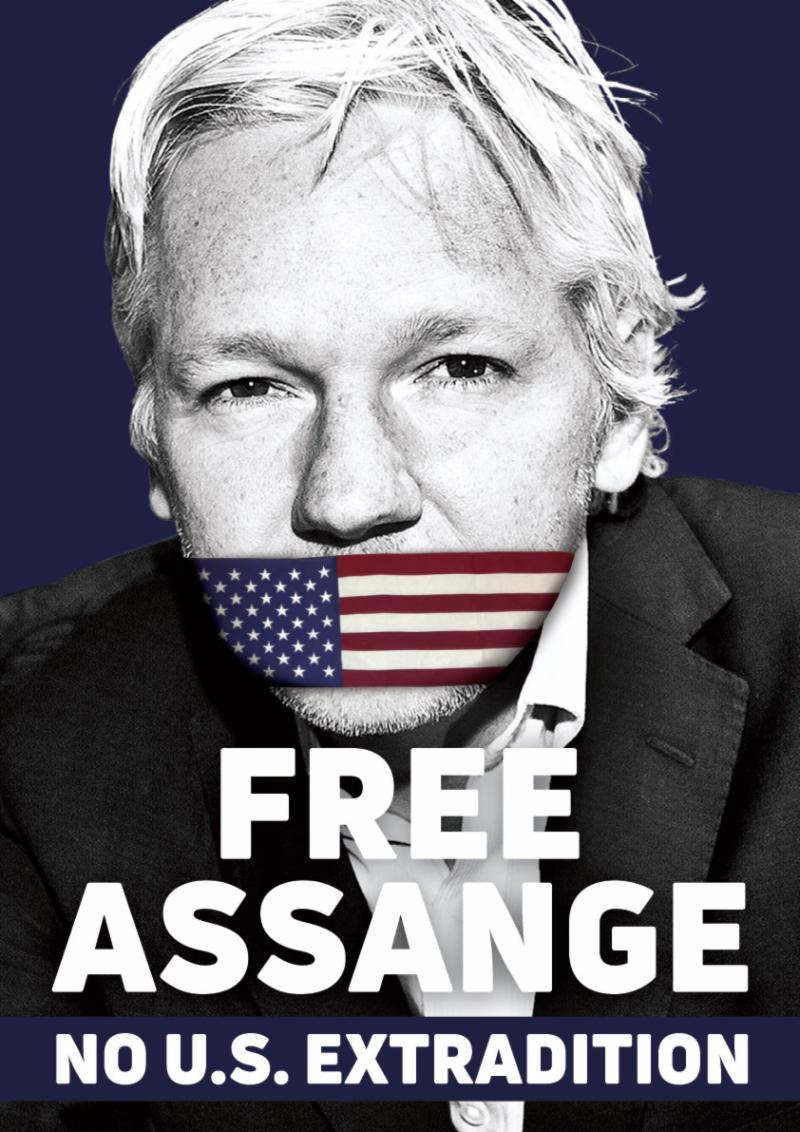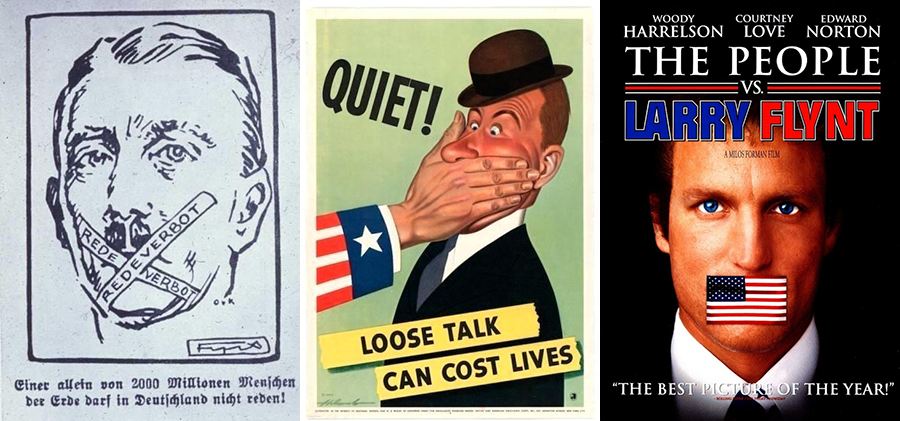
Poster by Somerset Bean
Are there limits to free speech? The old canard about not yelling fire in a crowded theater is easy to understand. Irresponsible speech, hate speech, libelous speech — indeed lies of any kind — is not considered free but harmful and often illegal. Yet publicizing unproven, questionable, and contentious theories and rhetoric born of religion, politics, art, and culture that distorts fact is protected under law and can be a dangerous weapon for and against truth. I cannot speak to the legal intricacies of free speech guidelines but I am an advocate of free speech principles. I believe that so-called acceptable speech changes as mores progress (or regress). Still, I have biases that can (and do) sometimes override these principles. I cherish liberal interpretations of the rights of free speech. I also have strong ambivalences when some of those biases play out in real time. I guess we all do.
I oppose speech that puts others at risk. Language that agitates for violence and hatred cannot be tolerated neither should talk or innuendo that libels and defames — free speech should not abridge the rights of others to be free. However, this is not absolute. Freedom comes with certain subjective baggage and exacts a moral price.
So, when I saw this protest poster against extraditing Julian Assange to the United States, I had grave misgivings not about hanging it but what it suggests. The idea behind Wikileaks to expose restricted information that the public nonetheless has a right to know and, given the wont of government and corporations to keep secrets, is valid. Whistleblowers and leakers have done great service over the span of history and many of them have suffered severe consequences for their bravery. But motive is a consideration when it is done to damage rather than repair. Leaks must not simply expose wrong doing but help legally remedy the wrong (if possible). I cannot help but question Assange’s motives and reconsider my own support of his reasons for disruption. I support activist disruption when it serves my beliefs (admittedly, I am less of an advocate when it does not). Fighting against injustice is justified. But accepting free speech means understanding its ramifications.

This is where propaganda plays a role. The barrage of propaganda against Assange has raised serious doubts about his veracity. Is his activism for the right or the wrong reasons? Is he protected in the name of journalism or should he be investigated for political partisanship? This poster makes it seem that America as a nation is against Assange and that gives me pause. The gag is clichéd graphic idea and has been used in many different iterations. Is the government trying to gag him? Yes. Do the people feel the same way? Not sure. But that’s the responsibility of Americans to determine on their own and not take the propaganda at face value. George Orwell said that if free speech (or liberty) “means anything at all it means the right to tell people what they do not want to hear.”
...Free speech is not always righteous speech. During the Weimar Republic Hitler was allowed to freely render his venomous rhetoric, then after it turned violent he was prohibited from public speaking by law, these rights were quickly reinstated by decree — look at how that all turned out. In times of war, information is closely guarded, so it requires strict classification — loose lips do indeed sink ships. Yet “Top Secret” should not be an excuse for unbridled censorship. Free speech is often used wrongly. That’s the gamble. But then again, some speech should be proscribed. Remember we also have the right to remain silent — determining when is the big challenge.

